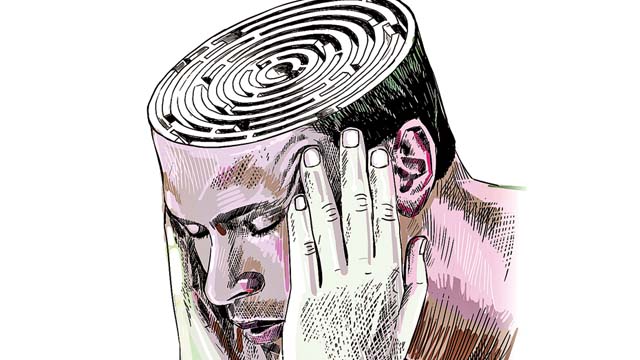 It is so easy to identify oneself with the chronic illness one is
afflicted with, especially if it happens to be a serious mental illness.
"I am a Schizophrenic" or "I am a Bipolar" and so on. Why does this
happen? How do we lose our identities, and allow our illnesses to 'own'
us?
It is so easy to identify oneself with the chronic illness one is
afflicted with, especially if it happens to be a serious mental illness.
"I am a Schizophrenic" or "I am a Bipolar" and so on. Why does this
happen? How do we lose our identities, and allow our illnesses to 'own'
us?There is a vast difference between physical and mental illnesses in the way they impact our thought processes, our belief systems and our spirits. Despite severe handicaps that physical illnesses impose upon us, they do not necessarily de-motivate us. Of course, in severe chronic illnesses such as arthritis, having to endure pain for years depresses a person. However, that brings in an element of mental illness in it.
I have personally battled both physical and mental illnesses: Asthma which has threatened my life on a number of occasions and Bipolar Disorder. I have bravely endured Asthma for over four decades and it has now lost its hold on me. The suffering it caused me with all those nights that I had to sit up wheezing and coughing...only a fellow asthmatic would understand how terrible it can be. Despite this, I can safely aver that decades of pain and uncertainty did not affect my morale, motivation or my mental strength for an extended period.
On the other hand, when Bipolar Disorder struck me, it took the wind out of my sails. I was totally lost, without a clue about how I would arise from the pit I found myself in. It virtually broke my back without there being serious physical suffering involved. Stigma is the first and biggest enemy. I think it is also partly internalised. "What will people think? How will they react?" The vacuum of peer support in India creates isolation that is scary. Many experience shame too. While shame spared me, I was weighed down by guilt and helplessness. That I was now a liability on my family. And fear. "How on Earth would I make a living and sustain my family?"
There is also the more direct upheaval the mind goes through because of the dreaded illness. This whirlpool of emotions was not a passing phase. It had me in its grip over for years. Before I knew it, I became a Bipolar. My identity was snatched from me. From my day's routine to my future plans were all undermined by the moods of Mr. Bipolar. My mental strength and self belief in tatters, I became a victim. The transition to stability was a long, difficult climb. It was also a period of fantastic learning. Our most difficult times are the times during which we grow the most as human beings. I had to draw upon all my inner strength to deal with the crisis I found myself in. I feel this expanded my reservoir of resilience and I shifted to the mode of acceptance.
A turning point was my interaction on global peer support sites. I read about all the suffering my peers were enduring and it became crystal clear to me that very few had been able to cope as well I had managed to. I had indeed been fortunate that I could at least live a disciplined life and manage to get some work done. Along the way, I realised that there was so much more to me. This learning got cemented when I opened up and began blogging about my condition. It was a pivotal moment: as my readers wrote back to me seeking advice and took inspiration, the Mr. Bipolar (victim) became the observer. I do not claim I have reclaimed my pre-bipolar days glory.
My obsession from worrying about whether I could be cured has given way to a pragmatic approach: as far I can live a normal life, why should I care? I am among the happiest people you'd find! All things being equal, I would not want to change anything and am glad that I now have this glorious opportunity to reach out to my community.
And I am no more my illness!
(c)DR. Vijay Nallawala

0 comments: